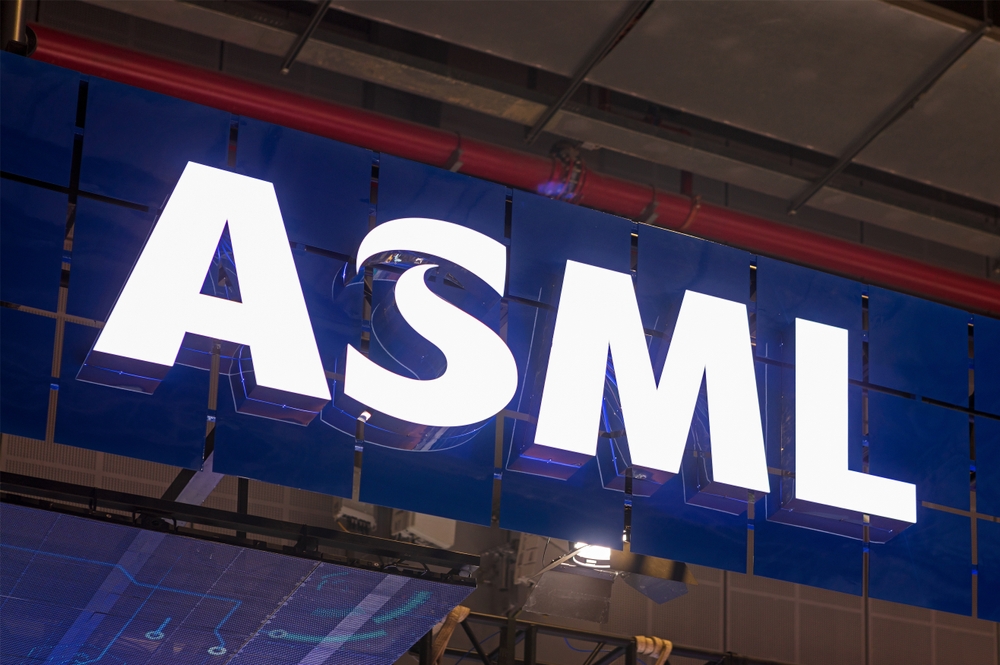ASML Holding (NASDAQ: ASML), a key manufacturer of chip manufacturing equipment, announced that it expects lower sales and orders for 2025, leading to the largest single-day decline in its share price since 1998.* Although chips for artificial intelligence are experiencing significant growth, other segments of the semiconductor market are still weaker than expected. This development leads to delays in orders from manufacturers of various types of chips and restrictions on capacity expansion, especially for memory chip manufacturers.
Weakness in the semiconductor sector despite the rise of AI
ASML, the largest technology company in Europe, is a leader in the supply of semiconductor manufacturing equipment. Its customers include major names such as Taiwan's TSMC, which makes chips for artificial intelligence, as well as logic chip makers Intel and Samsung, and memory chip specialists Micron and SK Hynix.
Christophe Fouquet, the company's CEO, said they expect sales to grow in 2025 to between €30 billion and €35 billion, the lower end of the range originally forecast. According to Fouquet, the weakening in the chip market is expected to continue into 2025, leading customers to be cautious about new orders.
ASML shares were suspended several times on the Amsterdam Stock Exchange and eventually closed with a decline of 16%[1] at 668.10 euros.* As for the company's quarterly results themselves, which, according to the company's spokesman, were published a day earlier due to a technical error, a net profit of 2.1 billion euros was achieved on revenues of 7.5 billion euros, which slightly exceeded analysts' expectations. However, orders were only 2.6 billion euros, well below the expected range of 4 to 6 billion euros.
Analysts react to the downgraded outlook
The stock itself fell during the summer months after Intel announced a reduction in capital expenditures, while memory chip prices weakened.* ASML's change in outlook therefore surprised analysts, who consider it a negative signal. Citi said in its report that the company's management claimed at the beginning of September that the lower end of the estimate for 2025 was still conservative.
Michael Roeg, an analyst at Degroof Petercam, noted that while the news is likely to negatively impact the broader semiconductor sector, he still expects ASML sales to grow in 2025 compared to 2024. According to him, the demand for chip production equipment is not declining yet, despite weak end markets. [1]
Record sales in China
ASML achieved record sales in China at the level of 2.79 billion euros, which represents 47% of the company's total sales for the past quarter. While the company can't sell its most advanced devices to China due to U.S. restrictions, Chinese chipmakers are investing heavily in ASML technology to produce older generations of chips.
ASML dominates the market for lithography devices that use lasers to create chip circuits. Despite regulatory restrictions and ongoing weakness in some market segments, ASML remains a key player in technology equipment. It is important to keep an eye on how the situation will evolve in the coming period and how the company will be able to leverage its strengths in this changing industry. [2]
* Past performance is not a guarantee of future results
[1], [2] Forward-looking statements are based on assumptions and current expectations, which may be inaccurate, or on the current economic environment, which is subject to change. Such statements are not a guarantee of future performance. They involve risks and other uncertainties that are difficult to predict. Results could differ materially from those expressed or implied in any forward-looking statements.
[1] ASML Holding's share price performance over the past five years: https://finance.yahoo.com/quote/ASML/


